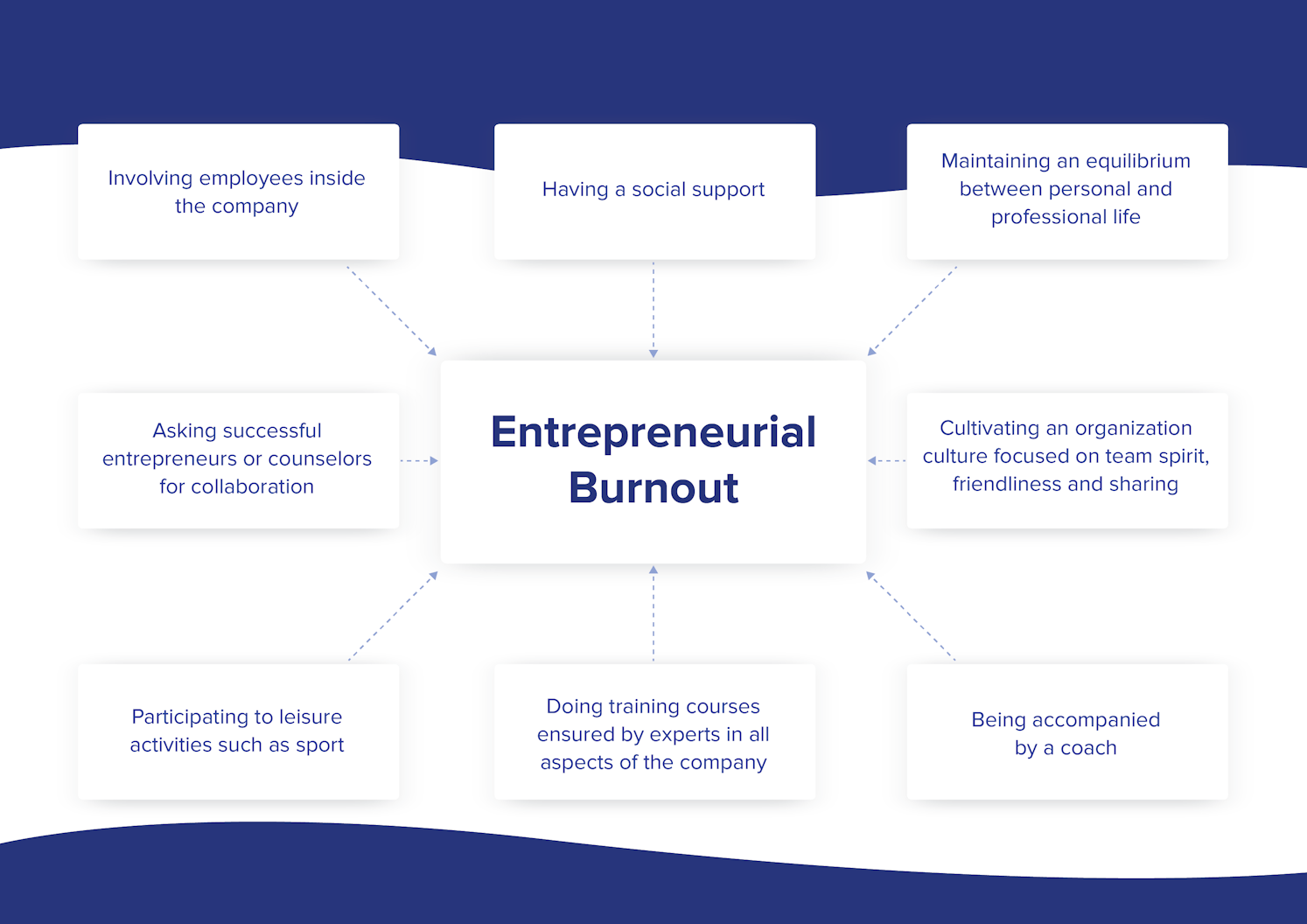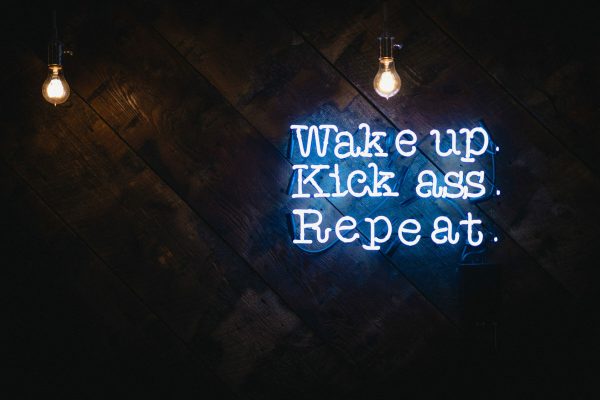You’ve heard it. We’ve heard it. We’ve all heard it…
Giving up the security of your regular paycheck in favour of starting your own business is risky, especially if you’re the sole breadwinner, and you don’t have a sizable financial cushion to help pave your way.
Yet every year, millions of aspiring entrepreneurs around the world take the leap, and choose to “go it alone.”
If you’re reading this, you’re likely one of them.
Congratulations! Not only have you done something that so many people dream of, but chances are you’re succeeding in spite of a great many well-meaning friends and family who’ve probably attempted to put you off.
Of course, deep down, you know your loved ones aren’t heartlessly trying to crush your ambitions.
You’ve read the stats. Your eyes are wide open. And you know full well that 20% of new startups fail in their first 12 months, and 50% of businesses with employees don’t survive long enough to celebrate their fifth birthdays.
Yet like every small business owner who went before you (and every first-time expectant parent come to think of it), you listened to the horror stories while simultaneously thinking yourself, “Nuh-uh. My biz baby will turn out differently.”
Of course, once the novelty of the fact that your morning commute now takes 10-seconds from bedroom to your kitchen table wears off, it quickly dawns on you that working for yourself is a damn sight harder than you ever realised it would be.
Putting a dollar value on your knowledge, skills, and experience isn’t easy, especially if you’re brand new to business, and up until now, salary brackets have placed a ceiling on your annual income.
Suddenly, you go from knowing your worth to selling your services for what you think people will pay for them and feeling eternally grateful when a client says “yes” and a few hundred bucks come your way.
Before you know it, you’re trapped in a cycle of diminishing returns, lowballing quotes to secure work, and juggling way too many clients to make ends meet.
Or, you find yourself equally as trapped at the other end of the spectrum, with precious few leads and entire months without any income, not to mention service delivery.
Either way, it doesn’t stop you working 80-hours a week for yourself to avoid working 40 for someone else and doing whatever it takes in an attempt to settle your proverbial biz baby to settle into some form of a predictable routine.
Which, of course, is the perfect recipe for entrepreneurial burnout.

The Signs of Burnout
According to Psychology Today, burnout is a state of chronic stress that leads to physical and emotional exhaustion, cynicism and detachment, feelings of ineffectiveness, and lack of accomplishment.
Much has been written about burnout in the context of traditional employment, with The Mayo Clinic highlighting common causes as the inability to influence one’s schedule, assignments of workload, unclear job expectations, dysfunctional workplace dynamics, extremes of activity leading to fatigue, lack of social support, and work-life imbalance.
Unmanaged, burnout can lead to insomnia, alcohol and or substance abuse, high blood pressure, diabetes, and a whole host of other physical and mental conditions.
Entrepreneurial Burnout
It goes without saying that burnout shouldn’t be trivialised, swept under the carpet, or dismissed as an unavoidable rite of passage. Yet, many of us look at the common causes and think those stressors simply don’t apply to us. And you’d be right –– to an extent.
Recent research focused exclusively on entrepreneurs and small business owners which hits closer to home. Unpredictable cash flow, lack of support in the form of peers, team members, or a wider social network of people who “get it,” along with lack of knowledge and information regarding critical aspects of running a business, all feature heavily potential causes for entrepreneurial burnout.
Additionally, research has found that many early-stage entrepreneurs don’t possess developed entrepreneurial competencies such as critical and strategic thinking skills, rock-solid emotional intelligence, unwavering self-motivation, or technical finance and business admin skills required to help them acquire, much less maintain a competitive advantage for a sustained period.
And if these factors weren’t enough, feelings of loneliness, an obsessive need to devote every waking moment to your business (often at the expense of your relationships) and the pressure to meet your financial needs, not to mention the social pressure to prove yourself to your family, friends, peers, and even ex-colleagues all have the potential to take a serious toll on your physical and emotional health.
But before you start thinking it might be time to cash in your chips know that, as an entrepreneur, you’re far more likely than your employed counterparts to be feeding your intellectual curiosity on a daily basis, and feeling generally optimistic about your future.
There’s no denying that entrepreneurial burnout could represent a very real threat to you and your business.
And with 15.8 million Americans working as entrepreneurs in the fourth quarter of 2018, research suggesting that burnout is claiming 8% of them each year, and advice for U.S., British, and Australian startups tip-toeing around the issue of mental health, we find ourselves asking:
Why Are so Few People Talking About This?
While there are a number of possible factors, notably shame and social isolation, the most obvious reason is that, as a culture, we tend to value high achievement over high performance. To put it even more simply, we place far more emphasis on the end results and often overlook the physical and emotional sacrifices made to achieve them.
So Where Does This Leave Us?
In their study published in the Fortune Institute of Business, Omrane, Kammoun & Seaman highlight a number of proactive steps we, as entrepreneurs, should take to avoid entrepreneurial burnout:

While we agree with every intervention they suggest, we note they overlook one habit that we encourage anyone who coaches with us to do –– conduct regular personal performance reviews.
Our Advice & Next Steps
At Agency Mavericks, we care just as much about your health, as we do about the health of your business.
Having witnessed more than our fair share of entrepreneurial burnout at both ends of the success spectrum, we came to realise that key performance indicators (KPIs) most entrepreneurs use to measure their business performance were in desperate need of an update.
With this business quarter fast coming to a close, we invite you to conduct a personal performance review using the five core measures that we use with our Mavericks Club members:
Monthly Revenue
At Agency Mavericks, we consider revenue as a barometer of the value you deliver to your clients, and how they perceive your contribution. If you’re not making the kind of money you’d like to be making, it could be that you’re targeting the wrong niche, that your ideal clients don’t see enough value in the service you offer, or that you need to uplevel your skills. Here is a helpful post with some worksheets to help you in these areas of your business.
Monthly Recurring Revenue
We’re talking consistently reliable income that you receive month in, month out, without having to go out and sign brand new clients. In the web building space, this might take the form of website care plans, while social media marketers and other digital creatives might commit to set deliverables on a regular monthly basis. For many small businesses, recurring revenue doesn’t just enable you to pay your bills; it’s ultimately what will give you the confidence to grow, knowing if all else fails, your regular income will cover paying your team.
Monthly Net Profit Percentage
Simply put, this is what’s left after you’ve subtracted all the costs associated with the delivery of your service and the running of your business, before tax. When calculating your net profit percentage we encourage you not to deduct owner’s pay as a cost, and where possible, elect to take pay yourself through periodic dividends.
Days Off per Month
We believe that you can’t do your best work, let alone show up as your best self if you’re continually operating from a place of overwhelm. We encourage everyone who works with us to take a minimum of eight days off a month, spaced at regular intervals. During your days off we encourage you to mentally and physically disconnect from your business completely, and give your full focus to your partner, family, and any leisure activities that you choose to take part in.
Percentage of Time Spent in Your Sweet Spot
As you read earlier, spending time on activities that you lack knowledge in, understanding and competence can be detrimental, not only to your enjoyment of doing business but also for your mental health. As the business owner, we encourage you to design your business so that you can spend as great a percentage of your time as possible on tasks that motivate, inspire, and energise you, and make a plan for those that deplete you.
Be honest… When was the last time you conducted a performance review for yourself and your business?
If your answer started with “ummmm…” then chances are you’re living one month to the next, and operating without any meaningful plan or strategy.
If there’s even a tiny possibility that might be the case…
If your monthly revenue is anything but predictably stable, and all your word-of-mouth leads have dried up…
It's time to take control of your business.
Start here, by filling out this financial spreadsheet for your business. Then join our Digital Mavericks Facebook group and click on the “guides” tab to tune into my free training videos. You don't need to do this business thing on your own. We have a supportive community on the inside who are there to help you through your roadblocks.
I hope to see you there!






